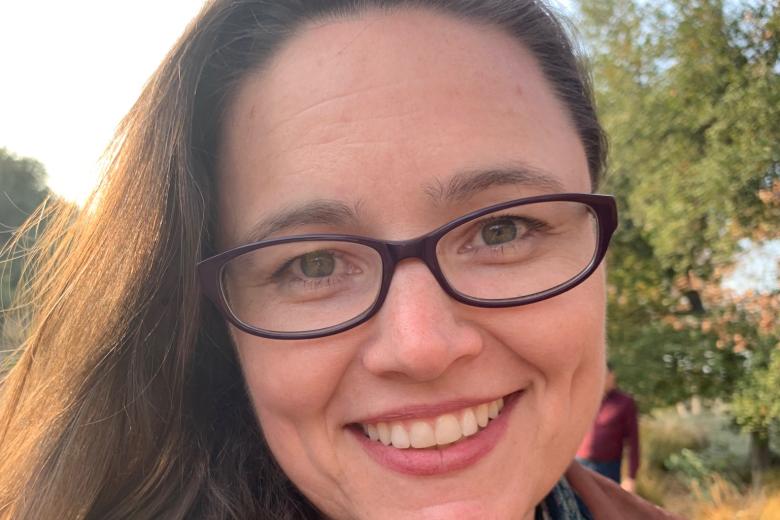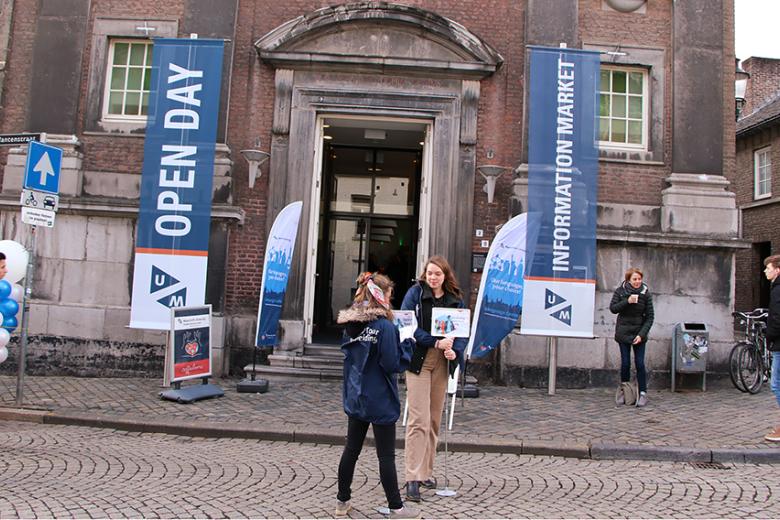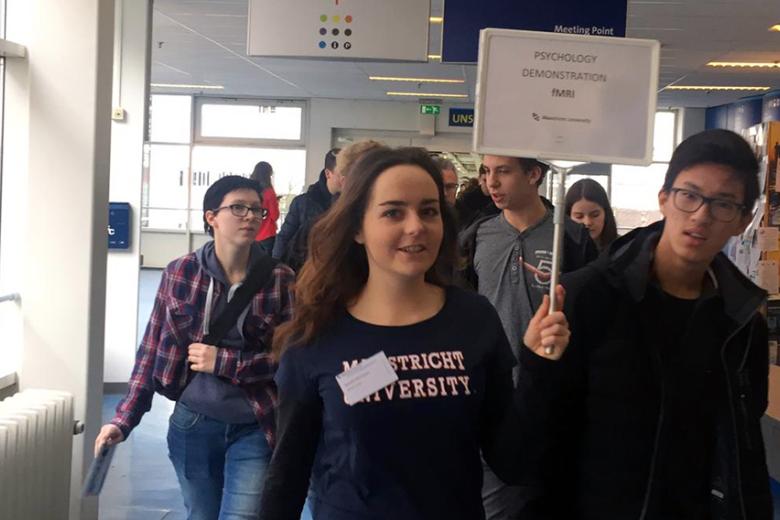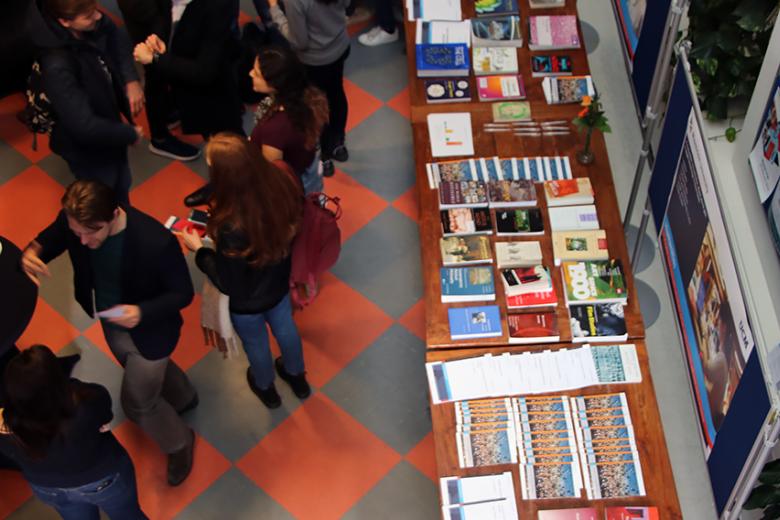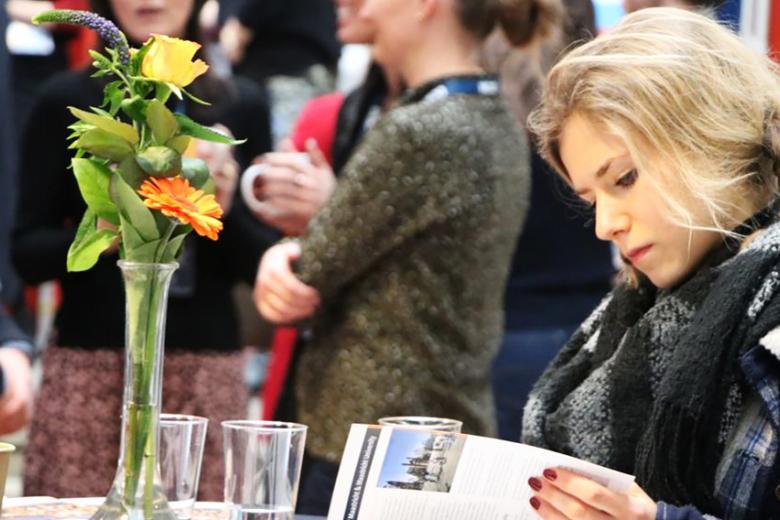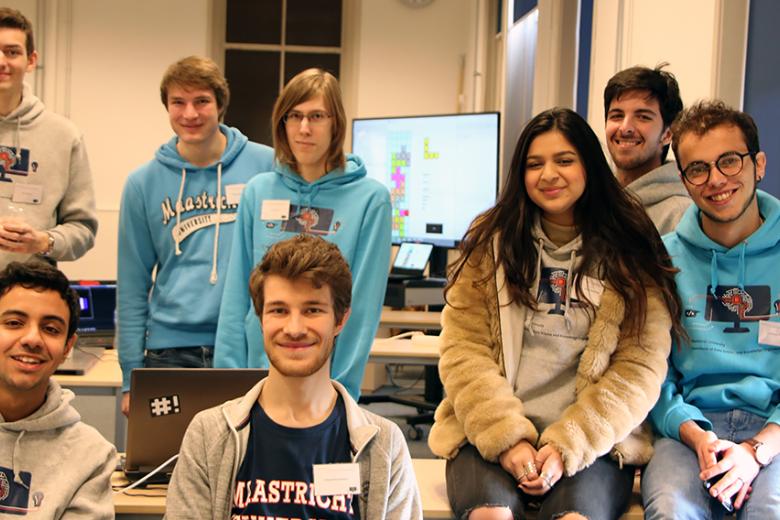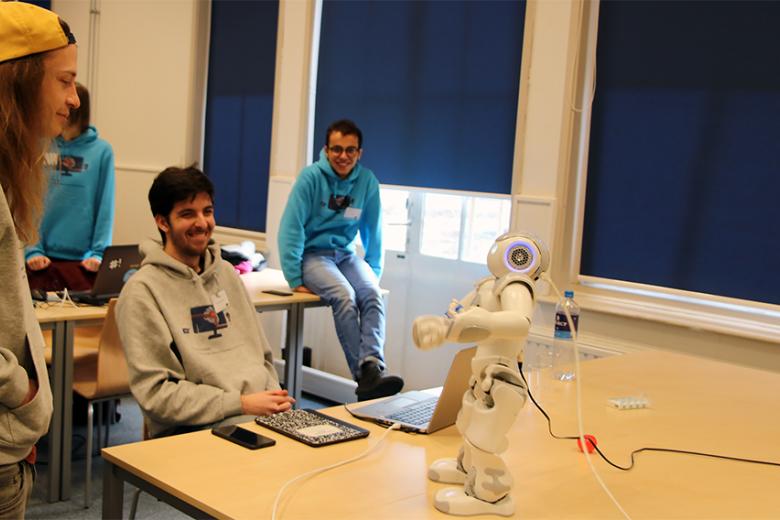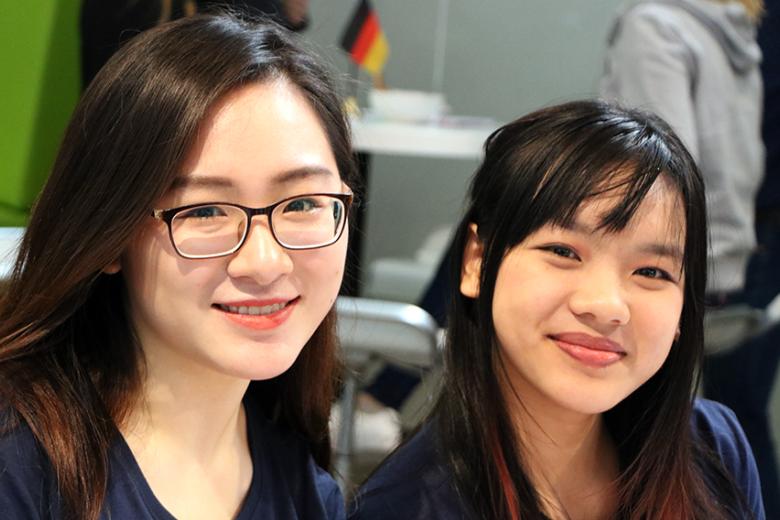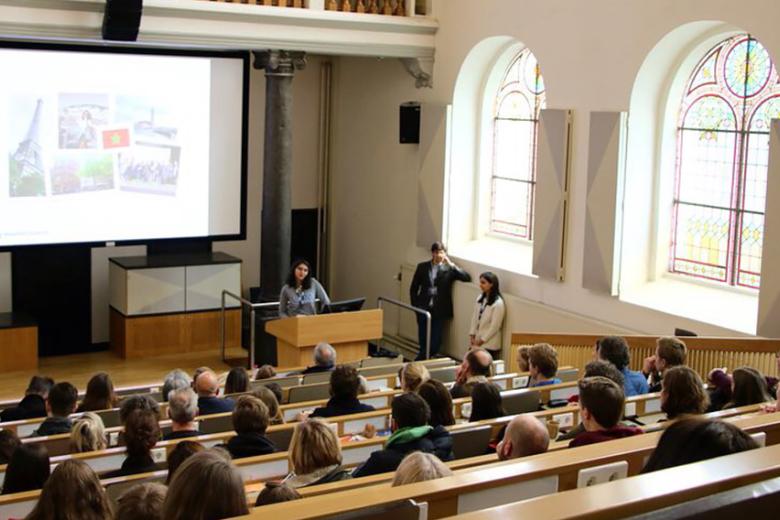UM Bachelor’s Open Day well attended
A record number of prospective students flocked to the faculties of Maastricht University on Saturday to visit the biannual Bachelor’s Open Day.
As many as 2422 upcoming students visited the information sessions, keen to learn more about UM bachelor’s programmes, admissions and the much-vaunted Problem-Based Learning model. A large number were escorted by their parents or guardians. A small majority of visitors came from the Netherlands; the others from as many as 63 countries.
As usual, the Faculty of Health, Medicine and Life Sciences proved to be the most popular institute. On the other side of the river, International Business and Economics & Business Economics attracted most prospective students: 655.
By comparison, last year's Bachelor's Open Day held on 24 February was attended by 1864 visitors.
Missed the Bachelor's Open Day?
Visit our 24/7 Virtual Open Day or join our next Bachelor’s Open Day on Saturday, 9 November 2019. The next Master’s Open Day will take place on Saturday, 16 March 2019.
More on our Facebook event page.
Impressions from the Bachelor's Open Day
Also read
-
Alum provides financial and employability support for young students
From the very first day of their master’s programme, SBE students Can Temiz and Mamadou Jabbie have had both feet planted firmly in the professional field. They are supported by scholarships from LKPU, a boutique German firm specialised in management consultancy. They receive mentoring and support...

-
Riding the waves of change: From a summer vacation to a life that feels as good as it looks
For SBE alumna Victoria Gonsior, one spontaneous decision: trying surfing sparked a journey of self-discovery, leading her to redefine success, embrace joy, and build a career that aligns deeply with her values. From quiet beaches in Sierra Leone to coaching sessions rooted in purpose, Victoria...
-
AI's moral architects: neither demi-gods nor code monkeys
Who’s to blame if AI goes wrong? And who’s responsible for it not having a negative impact in the first place? In her PhD thesis, "A Showing of Hands: Making Visible the Ethical Agency of AI Developers", Tricia Griffin looks at the people behind the technology and the clichés. She argues that we...
